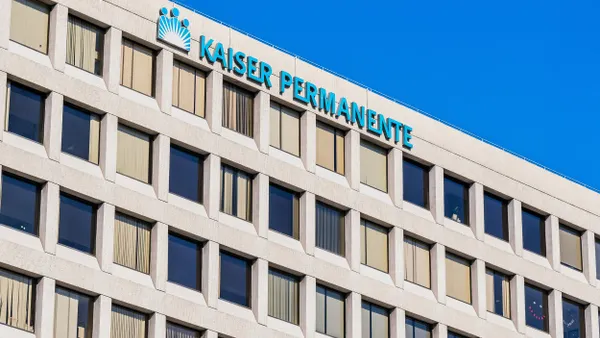Dive Brief:
- Medicare is giving bonuses to a majority of hospitals that it graded on quality, but many of those rewards will be wiped out by penalties the government has issued for other shortcomings, federal data show.
- The 2010 healthcare law required that Medicare pay hospital bonuses based partially on performance. This year, 55% of hospitals graded, or 1,700 organizations, earned higher payments for providing comparatively high-quality care, measured in patient satisfaction, death rates and the per-beneficiary cost to Medicare.
- However, fewer than 800 of the 1,700 hospitals that earned bonuses from the value-based purchasing program will actually receive extra money because they have fallen short in two other areas: higher-than-desired hospital readmission rates and patient infections.
Dive Insight:
Quality initiatives encouraged by the Affordable Care Act are a good incentive for hospitals to strive to improve patient care. And the fact that so many hospitals have been awarded bonuses is great. However, while reducing hospital-acquired infections and readmissions represent key goals (not just for improving quality but for lowering costs), not all hospitals have the same kind of patients.
In a recent interview with Healthcare Dive, Akin Demehin, senior associate director of policy for the American Hospital Association, said many hospitals are being unfairly penalized because the socio-demographic characteristics of the patients they serve is linked with a higher likelihood of readmissions—a factor beyond the control of the hospital.
Recent data from CMS show that approximately 77% of hospitals serving the poorest patients incur a readmissions penalty. By contrast, only 36% of hospitals with the fewest poor patients will receive a penalty.












